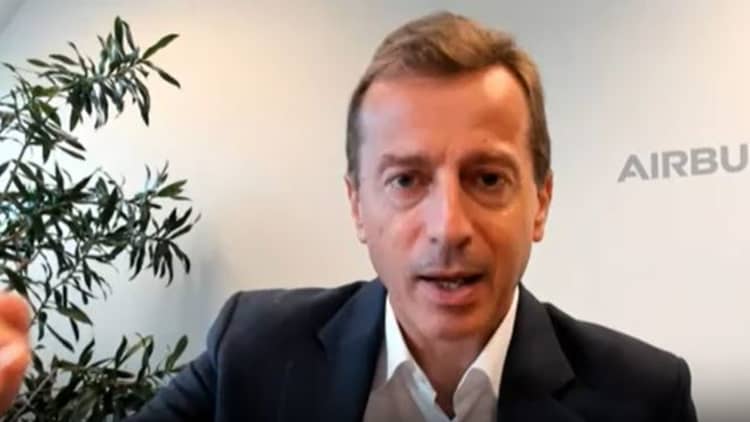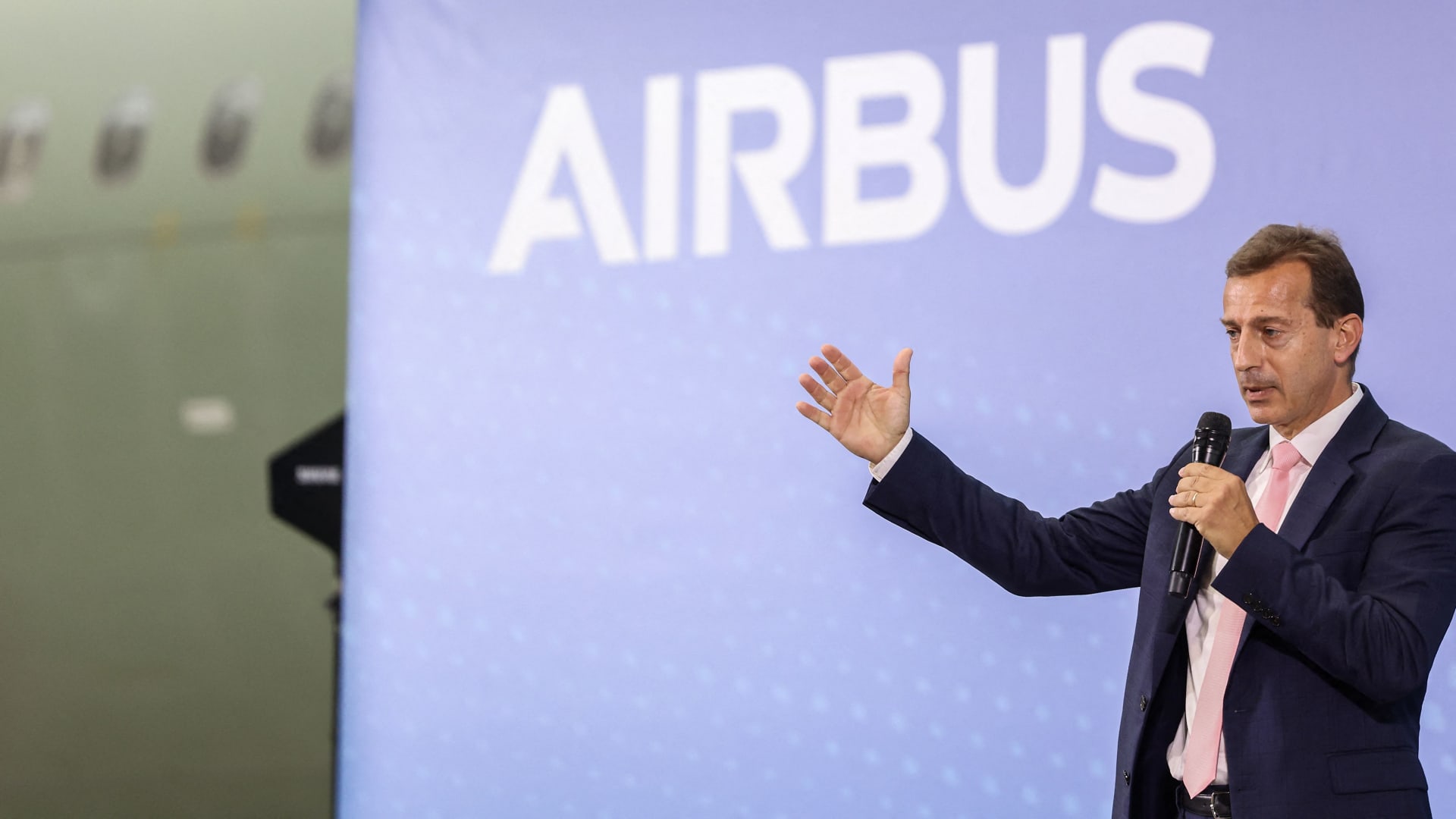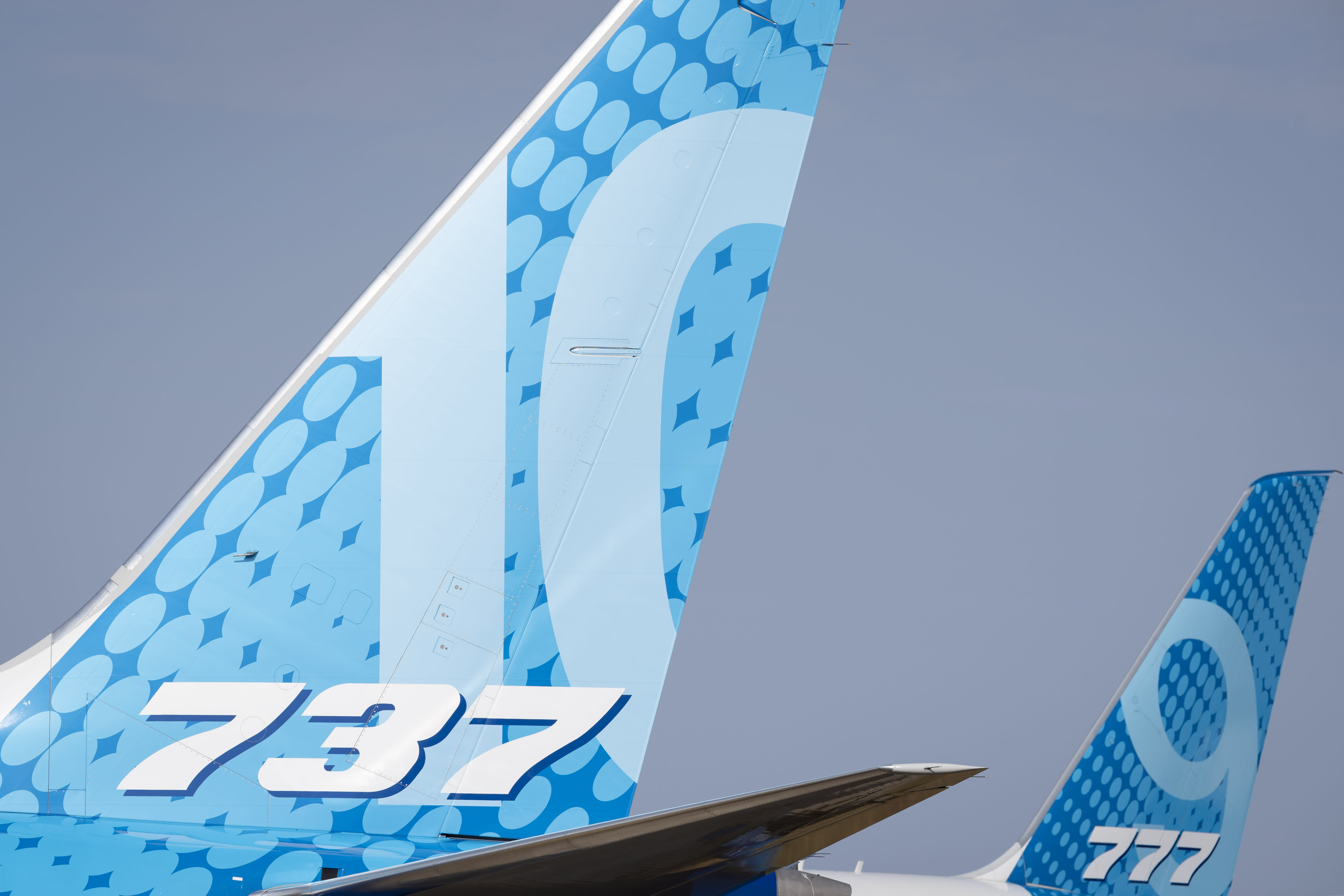
The chief executive of Airbus has called a lack of European collaboration on major defense projects following Russia’s full-scale invasion of Ukraine “frustrating.”
Guillaume Faury told CNBC’s Charlotte Reed that while there were pre-existing projects such as France, Germany and Spain’s Future Combat Air System, which Airbus is working on, Europe was not “showing unity in addressing the new threats and solutions.”
“That’s very challenging, and it’s quite frustrating to see that the responses that have been provided so far are mostly of a national nature and not much of a European nature,” he said Wednesday.
“That’s something we think Europe should reconsider and be more consistent, when it comes to working together on large programs.”
Asked whether this could mean mergers and acquisitions creating larger defense players in Europe, Faury said: “Well, a lot of things can happen without M&A and a lot of the programs that have been successful in the past were mostly of a cooperation nature, sometimes with joint ventures.”
Earlier this month, Michael Schoellhorn, Airbus’ defense chief, said in a Financial Times interview that political discussions about steps toward European defence programs had so far been “lip service.”
Schoellhorn said Europe remained too fragmented, and long-term clarity was needed before the industry could invest in the “procurement of bigger weapon systems behind aircraft and tanks.”
Airbus results Wednesday showed that revenues at its defense and space division fell 8% which it attributed to “delays in Space Systems and delivery phasing in Military Air Systems.”
Supply chain challenges
More broadly, however, Airbus — the world’s biggest planemaker — beat analyst expectations for its half-year earnings, with a 34% rise in operating profit and 24% higher revenue.
The company is still navigating supply chain difficulties and a “challenging” situation with its Pratt & Whitney engines, Faury told CNBC.
Key suppliers are on track with recovery programs “but we don’t see yet an environment that I would consider getting significantly better. That’s still a complex environment,” Faury said.

Airbus share price.
Analysts noted the removal of references to its 65-a-month production target for the A320neo family by the end of 2024.
Faury said the 65-aircraft target had been a “Covid reference” used to refer to its pre-pandemic levels, but that number was “no longer relevant” and it was focusing on taking all its supply chains towards 75, its new “hard reference.”
“On the A320 Family programme, production is progressing well towards the previously announced rate of 75 aircraft per month in 2026. Tactical adjustments to production planning will continue to be made as required to meet this target rate, which is now the key reference point for the Company and the supply chain,” Airbus said in its results.
Faury said further challenges on the supply side persisted in inflation, supply of raw materials, interest rates hitting suppliers with weaker balance sheets, and in recruitment and retention of workers.








More Stories
Outrage over order: Houston attorney fatally shot during fight with McDonald’s customer – Times of India
US has been holding up several weapons shipments to Israel for 2 weeks: Report – Times of India
HD Hyundai Marine Solution doubles in South Korea’s largest IPO since January 2022